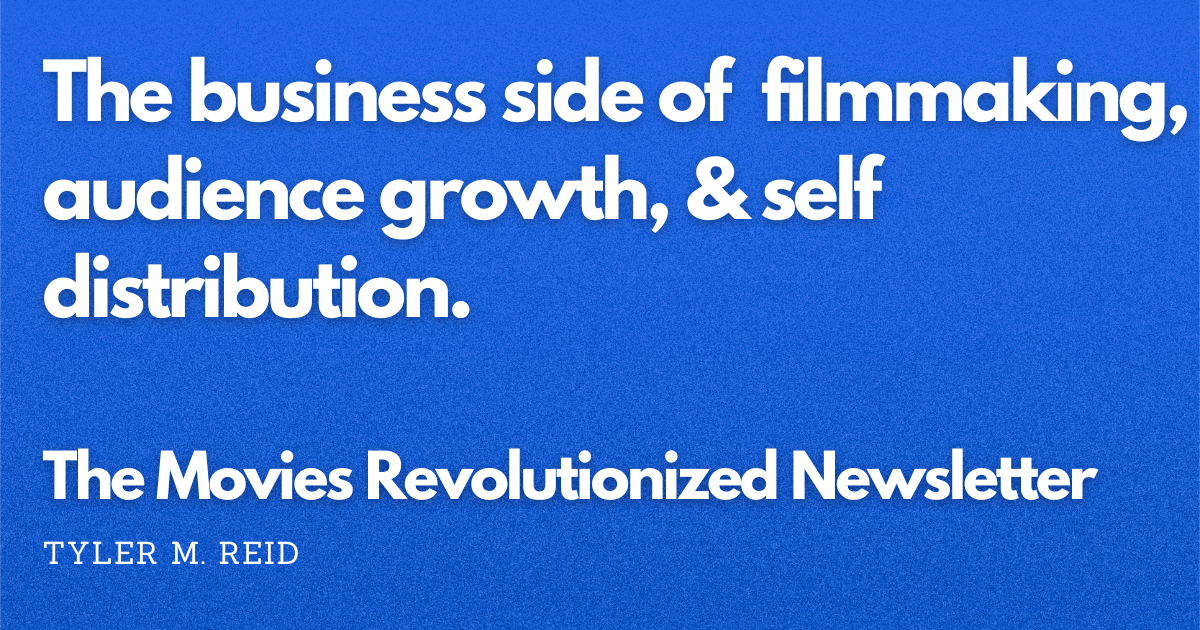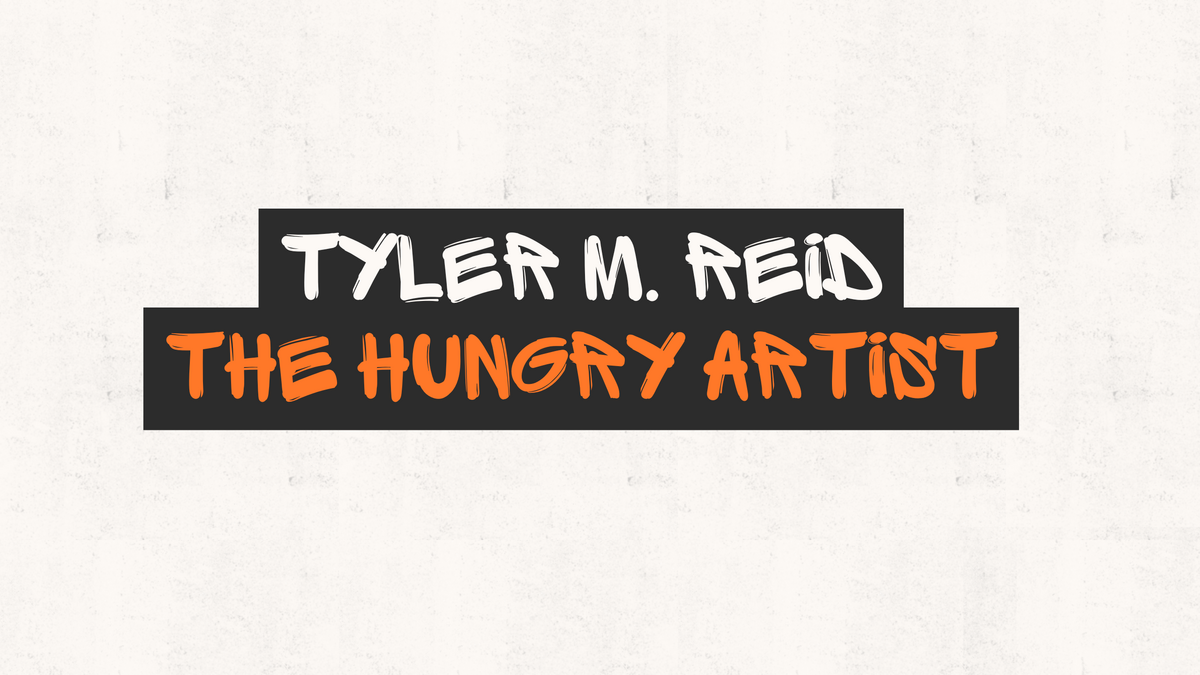There are still 291 days left of this year to accomplish a whole heck of a lot
I know many of you started this year with big goals for 2025, I know I did! In January you are riding the excitement of what the year could have in store for you. Then February comes and that shiny idea starts to feel a little rusty. By March you’re wondering if it’s going to happen at all. Guess what, I am also there too. This year started big for me, but the big things I wanted to happen, are still waiting to happen.
Three projects have already been rejected! Okay, so now its restrategize time and take it to the next steps. Two projects I am working at as an entrepreneur/creator are still behind, they should have launched by now but haven’t. It is easy to get unmotivated, to get demoralized and to move on.
Stick around to the end of this email because I am launching something special and giving away some stuff with that launch.
Setting the right goals for your filmmaking journey for the rest of 2025 can make all the difference. Whether you're making your first short film, planning your first feature, or aiming to get your screenplay into the right hands, the way you set your goals is key. Maybe you are saying “Tyler I already set those goals in January!”
Now it’s time to reset. That’s something I love doing. I like looking at what isn’t working and figuring out what I can shift to make it happen. That’s really what resetting goals is. It’s to set your self up to really get your goals accomplished. The cool thing about resetting is that it also gets you remotivated (not a real word but I like) to really see what you are aiming for to get accomplished. That rusty goal start to look shiny again.
Let’s break down how to make the rest of this year count, no matter which path you're on.
For the filmmaker making their first short film.
A short film is a great way to test your filmmaking skills, but it also has its challenges. Don't get caught in those vague dreams about success. Maybe you already started but got stuck halfway through.
Bad Goal: "I want my short to be a hit."
Better Goal: "I'm going to make a short film that really shows my storytelling, then submit it to 10 festivals that fit my style."
Here's how I'd break it down:
Master the basics. Make your short the best it can be with what you have. Every shot should count, every scene should serve your story. Even with a small budget (we all know those), you can do something amazing by focusing on quality not quantity. I very well done 5 minute short film with a tight story will always do better than a 15 minute short film that looks gorgeous but moves slowly and has a weak story.
Get organized in preproduction. Set real deadlines for finishing your script, getting your crew together, finding locations, and sorting your budget. The more organized you are before shooting, the smoother things will go on set.
Get feedback. Show your film to people you trust before submitting anywhere. Make sure your story connects and the technical stuff works. Use their feedback to make it better.
Be smart about festivals. Research ones that actually fit your film and focus on those. Pick a few with good reputations for new filmmakers rather than trying to be everywhere.
The key is focused action. Quality over quantity. Build momentum, keep improving, and don't settle. That rusty goal can look shiny again.
If it’s just to release your film online, like YouTube, and not a film festival that’s fine too. But the goal shouldn’t be to just release it on YouTube, it should be to make the film that you release on YouTube that you will then share and talk about over the course of 3 months on your social media platforms. That then gives you a goal you feel like you are really working towards to connect with.
For the filmmaker making their first feature:
Making a feature film is a big deal, and it requires some real goal setting to stay on track. You need to take action on so many fronts, from getting money to finding the right team, to actually shooting and figuring out how people will see it.
Bad Goal: "I want to make a feature film."
Better Goal: "I'm going to raise $50,000, put together a team that knows what they're doing, and create something distributors will actually want."
Here's how I'd break it down
Get the money. Instead of just hoping money appears, make a real plan. This might be crowdfunding, pitching to investors, going after grants, or finding sponsors, or my favorite, is using ALL of those together! Set deadlines for yourself on each of these approaches and stick to them.
Find people who get it. Your team will make or break your film. Connect with key people who will make your project better, a producer who hustles, a DP who can make things look amazing on a budget, whatever you need most. Don't just fill spots with whoever's available, find collaborators who understand what you're trying to do.
Figure out locations and gear. Whether you're borrowing equipment or renting, decide how to get the most bang for your buck. Don't blow your whole budget on one fancy camera and then have nothing left for sound (I've seen this happen!). Think about the whole picture.
Plan how people will see it. Start thinking about distribution early. Set a goal to figure out your path, whether it's festivals, streaming platforms, or doing it yourself. Start building that plan before you're done shooting.
Think about making money back. Have some ideas for how your film will earn something. Consider festival prizes, licensing deals, selling merch, or even taking your film on tour like a band would. Define these early so you're not scrambling later.
Your first feature will need lots of different strategies all working together. But by breaking your goals into steps you can actually take, you make the whole thing less overwhelming. That rusty feature film goal starts looking possible again!
For the screenwriter looking to get their script seen.
If you're a writer trying to get your screenplay in front of agents, managers, or producers, your goals look different. You're not shooting it yourself, but trying to get the right people to help make it happen.
Bad Goal: "I want someone to make my screenplay into a film."
Better Goal: "I'm going to get my script in front of five industry people each month and build relationships with producers who make movies like mine."
Here's how I'd break it down.
Network, but for real! It's not just about going to events, it's about actual connections with the right people. Set goals to connect with specific agents, managers and producers who work in your genre. Have real conversations, online or in person.
Make your pitch better. Your query letter and pitch are first impressions. Get feedback from people you trust. Work on your logline, tighten your synopsis, and practice for those pitch meetings.
Be smart about submissions. Don't just email everyone you can find. Research which agents and managers actually handle your kind of work and focus on them. Set a goal for how many queries you'll send each month and keep track. The same goes for producers. Know that the one you are sending an email too is one that is more likely to respond because they have working in genres like yours.
Go to the right events. Plan to attend workshops, pitching sessions, or film festivals where you'll meet industry people. There are even filmmaking cohorts and digital workshops. These are your chances to get noticed. Prepare your materials ahead of time to make the most of these opportunities.
Build your presence. Even without making films, you can build an audience. Maybe grow your social media by sharing your writing process or thoughts on filmmaking. This makes you more visible to producers looking for new voices.
For screenwriters, it's not about waiting to be "discovered." Set goals that get your work in front of the right people, so you're always moving forward. That rusty dream of seeing your words on screen? It can shine again with some polish and persistence!
Final Thoughts:
Whether you're making your first short, planning your first feature, or hoping to get your screenplay into the right hands, 2025 can still be your year of growth—if you reset those goals right. The key is focusing on actions you can actually control and breaking down your goals into steps you can measure. Don't set yourself up to fail by aiming for stuff that's out of reach. Define the actions that will get you there instead.
Remember, filmmaking needs both big dreams and doing the work. By focusing on what you can do, you'll take stronger steps toward making your projects happen. Those rusty goals from January? They can still shine by December if you're willing to polish them up now.
Whoa I have been working on this a LONG time. It’s nearly finished, but now it is finally at the pre-launch stage. I am releasing the course in ONE MONTH. Prior to that I am selling the course for $30 less than the launch price AND I am giving everyone that buys the pre-launch course the Filmmaker Template Package for FREE. The filmmaker template package has over 40 templates such as a ready to use budget spreadsheet, director employment agreement template, actor letter of commitment template, location agreement template, and many more.
I have tried to make this course as robust as possible. I want you to walk away from this and really feel like you have pretty much all the tools and knowledge to go out and find money to make your film, to grow your audience, to release your film, and to also so importantly earn a revenue from your film.
I know it’s hard to get a film made, I know it’s hard to find money, I know it’s hard to grow an audience & community, and I know it’s hard to earn money from all of that so you can keep making films.
I want this course to help make all of those things easier. Not only am I pulling from my own experiences but I set out to get information and education from other producers, distributors, investors, financiers, and even marketing specialists to compile some of the best knowledge I have seen, into this course, for you.
P.S. This is one of dozens of articles I have written, if you want to dive in further you can find all my previous articles here: https://tylermreid.beehiiv.com/
P.S.S. I am looking for affiliates who want to earn a percentage of the sales to help me in the launch of my course. If you are a filmmaker that shares across social media, or has a newsletter, a podcast, or YouTube channel, reply back to this email to let me know if you’re interested.


